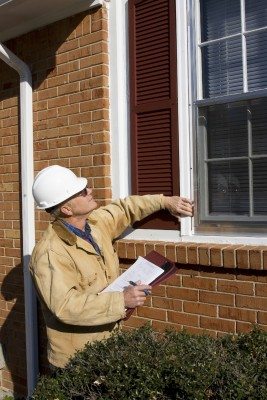 Buying a used (or even new) home can be a daunting prospect. Homes have some many little movable parts in them, it’s almost impossible to catch all the problems it may have. Usually the older the house, the more chances that problems may lay hidden within.
Buying a used (or even new) home can be a daunting prospect. Homes have some many little movable parts in them, it’s almost impossible to catch all the problems it may have. Usually the older the house, the more chances that problems may lay hidden within.
Whether it’s outside, inside, within the walls, or below the home, every area of the home should be checked by a qualified home inspector to make sure you don’t end up with a big bill after your home purchase. While most good inspectors will do a thorough job inspecting your soon-to-be-home, here are a few areas you should be extra careful of by asking for details:
Roofing
A home’s roof is one of the most important components of its structure. A bad roof can cause leaks, animal infestation, mold, and energy inefficiency. Most roof homes last anywhere from 15-25 years, however, factors such as bad workmanship and hail/storm damage could cause problems earlier in the roof’s life. Ensure that your home inspector checks the roof both inside (through the attic) and outside. Try to find out how old the current roof is, whether its under warranty, and how well its been taken care of.
For future inspection, we recommend you get a trained roofing specialist to your home to give you a better assessment, especially in storm-prone areas like Texas. You could never bee too sure!
Foundation
Foundations are a key part of the integrity of a home. A bad foundation can cause problems to the structure of walls, doors, windows, and roofs. For the most part, homes with bad foundations should be avoided, since the cost of leveling and repairing foundations can be extremely high. In addition to having an inspector review the home, ask the previous homeowners if it was maintained properly (ex. watered during long periods of heat).
Mold
Mold can be a nasty addition to any home, and unfortunately it’s quite common. Mold spores, which flourish in damp, dark areas, travel across the air infecting anything they touch. Unfortunately, mold can enter a human body, causing illness and discomfort. It’s important to make sure your family is not breathing in this toxin. Have your home inspector check every area where moisture might gather, such as air conditioning units, vents, plumbing and roofs. A badly ventilated and sealed roof can cause moisture to accumulate, encouraging the growth of mold spores. Most mold can be removed by a trained specialist, however have your inspector take close inspection of all areas to assess any cost associated with removal.
Take some time to consider these basic items when purchasing a used home. There’s nothing worse than having the excitement of moving into a home be squandered by a large repair bill.

